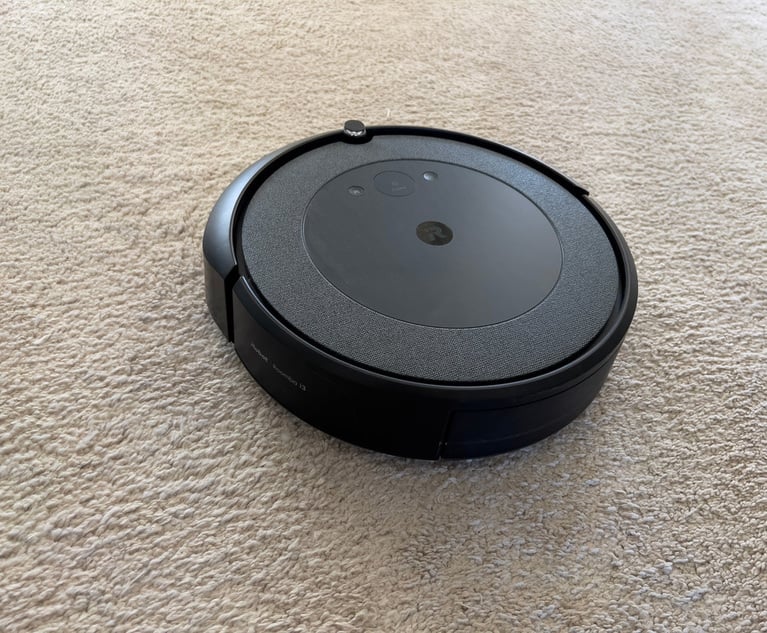Does the Legal Department Have a Role in Preventing a Product Recall?
Legal experts talked with Corporate Counsel about what corporate law departments can do before, during and after a product recall or other corrective action to prevent, negotiate and mitigate the outcome.
May 14, 2019 at 03:18 PM
4 minute read
 Fisher-Price Rock 'n Play Sleeper. Courtesy of Fisher-Price
Fisher-Price Rock 'n Play Sleeper. Courtesy of Fisher-Price
The role of a company's top lawyer has expanded so much over the past several years that, according to legal experts, it now may even extend to helping prevent a product recall.
And probably no one knows this better than Robert Normile, executive vice president, chief legal officer and secretary at toy-making giant Mattel Inc. Last month, all models of Fisher-Price Inc.'s Rock 'n Play sleepers were recalled following reports of infant deaths while using the product. At least four class action lawsuits have been filed, including one against Amazon.com, alleging the recall of the 4.7 million products is inadequate.
Mattel, based in El Segundo, California, owns Fisher-Price, based in East Aurora, New York, the latter of which seemingly has not had a general counsel since February 2018. A Mattel spokesperson did not immediately respond to either an email or phone request for comment about the makeup of the companies' legal departments.
Preventing a recall, legal experts told Corporate Counsel, begins well before a product goes to market.
It “is about ensuring that the design, development, manufacture and marketing of your product is kept under close scrutiny,” Alison Newstead, a partner/solicitor at Shook, Hardy & Bacon in London, said in an email, adding that keeping a watchful eye on the manufacturing process and quality control measures is also extremely important, particularly when manufacturing is carried out overseas.
“Product recalls often stem from products not being manufactured to specification; both in terms of design and materials,” she said. “Some companies even 'parachute in' quality control managers to overseas production plants to ensure that production continually meets the requisite standards.”
Tracking social media also is important to help ensure that the company “is getting ahead of the storm,” said Colin Kelly, a partner at Alston & Bird.
“In these situations, most of the time you want to be in a proactive stance, not reactive because if you're in reactive mode, you're already losing the battle,” he said.
To that end, Kelly said, companies should always be on the lookout for an unusually large number of negative product reviews, especially products for children, the elderly and animals.
A corporate law department also plays a significant role in negotiating with various regulatory agencies as to what corrective action, if any, should be taken, the experts said. Since the agencies—whose main focus is understanding the potential safety issue and the level of risk that it poses to consumers—encourage “two-way discussions,” it is “imperative that company lawyers engaging in discussions with regulators have a complete and accurate assessment of the facts from which the safety issue arises and a comprehensive and sound analysis of the risk posed,” Newstead said.
In addition to the legal department, other units, including the engineering departments, should be heavily involved in this assessment, Kelly said, adding that engaging an outside expert who may have designed the product differently may be warranted.
Once the recall launches, the legal team's involvement is likely focused on reporting response rates to regulators and dealing with their follow-up questions, Newstead said.
“It is possible that additional and/or alternative corrective action will need to be taken if response rates are not meeting the levels deemed satisfactory by the regulator,” she said.
She continued of the legal department's role post-recall: “The legal department will also inevitably be involved in managing post-recall litigation. A strategy will need to be adopted as to addressing post-recall claims, which will see an upward spike. Claims will need to be thoroughly investigated to ensure that they relate to the actual products recalled. Often the number of spurious claims also sees an increase.”
This content has been archived. It is available through our partners, LexisNexis® and Bloomberg Law.
To view this content, please continue to their sites.
Not a Lexis Subscriber?
Subscribe Now
Not a Bloomberg Law Subscriber?
Subscribe Now
NOT FOR REPRINT
© 2025 ALM Global, LLC, All Rights Reserved. Request academic re-use from www.copyright.com. All other uses, submit a request to [email protected]. For more information visit Asset & Logo Licensing.
You Might Like
View All
Exits Leave American Airlines, SiriusXM, Spotify Searching for New Legal Chiefs
2 minute read

Starbucks Hands New CLO Hefty Raise, Says He Fosters 'Environment of Courage and Joy'

Trending Stories
- 1States Accuse Trump of Thwarting Court's Funding Restoration Order
- 2Microsoft Becomes Latest Tech Company to Face Claims of Stealing Marketing Commissions From Influencers
- 3Coral Gables Attorney Busted for Stalking Lawyer
- 4Trump's DOJ Delays Releasing Jan. 6 FBI Agents List Under Consent Order
- 5Securities Report Says That 2024 Settlements Passed a Total of $5.2B
Who Got The Work
J. Brugh Lower of Gibbons has entered an appearance for industrial equipment supplier Devco Corporation in a pending trademark infringement lawsuit. The suit, accusing the defendant of selling knock-off Graco products, was filed Dec. 18 in New Jersey District Court by Rivkin Radler on behalf of Graco Inc. and Graco Minnesota. The case, assigned to U.S. District Judge Zahid N. Quraishi, is 3:24-cv-11294, Graco Inc. et al v. Devco Corporation.
Who Got The Work
Rebecca Maller-Stein and Kent A. Yalowitz of Arnold & Porter Kaye Scholer have entered their appearances for Hanaco Venture Capital and its executives, Lior Prosor and David Frankel, in a pending securities lawsuit. The action, filed on Dec. 24 in New York Southern District Court by Zell, Aron & Co. on behalf of Goldeneye Advisors, accuses the defendants of negligently and fraudulently managing the plaintiff's $1 million investment. The case, assigned to U.S. District Judge Vernon S. Broderick, is 1:24-cv-09918, Goldeneye Advisors, LLC v. Hanaco Venture Capital, Ltd. et al.
Who Got The Work
Attorneys from A&O Shearman has stepped in as defense counsel for Toronto-Dominion Bank and other defendants in a pending securities class action. The suit, filed Dec. 11 in New York Southern District Court by Bleichmar Fonti & Auld, accuses the defendants of concealing the bank's 'pervasive' deficiencies in regards to its compliance with the Bank Secrecy Act and the quality of its anti-money laundering controls. The case, assigned to U.S. District Judge Arun Subramanian, is 1:24-cv-09445, Gonzalez v. The Toronto-Dominion Bank et al.
Who Got The Work
Crown Castle International, a Pennsylvania company providing shared communications infrastructure, has turned to Luke D. Wolf of Gordon Rees Scully Mansukhani to fend off a pending breach-of-contract lawsuit. The court action, filed Nov. 25 in Michigan Eastern District Court by Hooper Hathaway PC on behalf of The Town Residences LLC, accuses Crown Castle of failing to transfer approximately $30,000 in utility payments from T-Mobile in breach of a roof-top lease and assignment agreement. The case, assigned to U.S. District Judge Susan K. Declercq, is 2:24-cv-13131, The Town Residences LLC v. T-Mobile US, Inc. et al.
Who Got The Work
Wilfred P. Coronato and Daniel M. Schwartz of McCarter & English have stepped in as defense counsel to Electrolux Home Products Inc. in a pending product liability lawsuit. The court action, filed Nov. 26 in New York Eastern District Court by Poulos Lopiccolo PC and Nagel Rice LLP on behalf of David Stern, alleges that the defendant's refrigerators’ drawers and shelving repeatedly break and fall apart within months after purchase. The case, assigned to U.S. District Judge Joan M. Azrack, is 2:24-cv-08204, Stern v. Electrolux Home Products, Inc.
Featured Firms
Law Offices of Gary Martin Hays & Associates, P.C.
(470) 294-1674
Law Offices of Mark E. Salomone
(857) 444-6468
Smith & Hassler
(713) 739-1250






